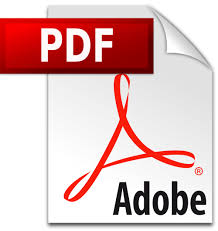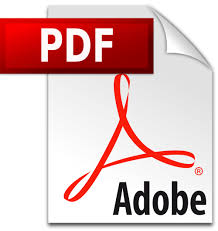Date: July 18-19, 2016
Venue: Howard Plaza Hotel, Taipei City, Chinese Taipei
Host: Council of Agriculture, Chinese Taipei
BACKGROUND
Food loss and waste poses an urgent global issue with significant ramifications for the Asia-Pacific region. As Asia-Pacific region economies mature and populations continue to grow, major challenges lie ahead in increasing access to food while ensuring a sustainable natural environment. Effective public-private partnerships and cross-border cooperation are critical to sustainable development and dissemination of food loss reduction policies.
APEC has taken a leading step in the Asia-Pacific effort to reduce food loss and waste by supporting a multiple-stage research and policy advising project. Chinese Taipei has been implementing the APEC Multi-Year Project (MYP SCE 02 2013A) on “Strengthening Public-Private Partnership to Reduce Food Losses in the Supply Chain” since 2013. Project implementation has so far established a network of experts on food loss, a technical team to gather and maintain pertinent data and perform analyses, and consultations on various food sectors including food crops in 2013, vegetables and fruits in 2014, and fishery and livestock products in 2015. 2016 is the final year of sector-specific consultations and will focus on retail sectors and consumers. The project will reach its conclusion phase in 2017 by synthesizing all information into a database, holding a high-level policy dialogue, and forming high-level policy recommendations.
Consumer and retail-level food waste presents a major target for waste reduction. Consumer and retail sector food waste, otherwise referable as demand-side stakeholder behavior, has an inverse relationship with producers, or supply-side actors in food loss and waste behavior. Depending on the maturity of the economy, the bulk of food losses occur either in the production process or in consumption and retailing. Mature economies are typically production-efficient, consumption-wasteful as their producers are capital-intensive and process-efficient while consumers have more disposable income which reduces the inclination to save food. The 2016 expert consultation focus on consumption and retail is therefore a good opportunity for regional cooperation to foster understandings and communications on waste reduction/prevention to aid the entire APEC region in policy design to combat food loss and waste into the future.
AGENDA
|
DAY 1: July 18, 2016 (Monday)
|
|
08:30-09:00
|
Registration
|
|
09:00-09:20
|
Welcome Remarks
- Ms. Dong-Chong Hsiou, Deputy Director General, Department of International Affairs, Council of Agriculture
- Amb. Pei-Yung Hsu, APEC Senior Official, Director General, Ministry of Foreign Affairs, Chinese Taipei
|
|
09:20-09:40
|
Group Photo
|
|
09:40-10:00
|
Opening Remarks
Prof. Ching-Cheng Chang (Academia Sinica and National Taiwan University, Chinese Taipei)

|
|
10:00-10:20
|
Coffee Break
|
|
10:20-12:00
|
Panel Session 1: Evidence and Causes of Food Waste in the Consumer and Retail Levels
Main Issues:
- What are the current trends and challenges in food waste reduction in the consumer and retail sectors in the Asia Pacific?
- What are the existing definitions for food losses and waste in the consumer and retail sectors?
- How can we use the survey and research results on food losses and waste to generate attentions and consensus for promoting policy actions safeguarding the global/regional food security?
- How do APEC, non-Asia-Pacific, and other local/regional efforts in reducing food waste impact this project or represent strong partnership opportunities?
Presentations – 40 min each
1. Reducing Food Waste in APEC: Implications for Retailers and Consumer
Dr. Don Gunasekera (Victoria University, Australia)

2. Consumers’ Food Choices and the Roles of Retailers in Reducing Food Waste in APEC Region
Dr. Miranda Mirosa (University of Otago, New Zealand)

Chair: Prof. Ching-Cheng Chang
|
|
12:00-13:30
|
Lunch
|
|
13:30-14:50
|
Panel Session 2: Understanding the Potential Impacts of Reducing Food Losses and Waste in the Consumer and Retail Sectors
Main Issues:
- How to estimate the benefits of reducing food waste on the demand side (by households and in retail) for public policy reference/promotion?
- Which sectors should receive priority when reducing food waste on the demand side (by households and in retail)?
- How does this compare with pursuing a healthy diet and sustainable agriculture/food system in the EU and in the APEC?
- What are the implications for reducing postharvest losses and food waste in the APEC region of liberalizing logistics sector through improving supply chain management?
Presentations – 30 min each
1. Impact of Reducing Food Loss and Waste in EU
Dr. Monika Verma (The Agricultural Economic Research Institute (LEI), Wageningen UR, the Netherland)

2. Impact Assessment of Reducing Food Loss and Waste on Food Security in the APEC Region
Prof. Tony Shih-Hsun Hsu (National Taiwan University, Chinese Taipei)

Chair: Dr. Don Gunasekera
|
|
14:50-15:10
|
Coffee Break
|
|
15:10-18:00
|
Session 3: Member Economy Reports on Food Waste
Main Issues:
- What is the retail and consumer relationship with the supply chain and production structure in your economy?
- Are there retail stakeholders or consumer groups suitable for research and data gathering in your economy?
- What is the current status of food waste research (e.g., prevention, reduction, recovery and recycling) in your economy and have they been applied to the food industry and consumers?
- What are the existing information gaps and recommendations for data gathering and future research?
- What are the major policies and measures/initiatives/programs to prevent, reduce, recover or recycle food waste in your economy? (Please provide the framework, plans of actions, targets, expected achievements, and potential challenges.)
Presentations –15 min each report
1. People's Republic of China

2. Indonesia

3. Republic of Korea

4. Malaysia

5. Papua New Guinea
6. Peru

7. The Philippines

8. Singapore

9. Chinese Taipei

10. Thailand

11. Viet Nam

Moderators: Prof. Doo-Bong Han, Prof. Tzong-Ru Lee, and Dr. Witsanu Attavanich
|
|
18:30-20:00
|
Welcome Dinner
|
|
DAY 2: July 19, 2016 (Tuesday)
|
|
08:30-09:00
|
Registration
|
|
09:00-10:20
|
Panel Session 4: Innovations for Food Waste Reduction
Main Issues:
- What are the major innovations/measures/initiatives/actions/programs to prevent, reduce, recover or recycle food waste at retail sector and consumers’ level?
- What issues should be prioritized and at what levels – individual, household, and other?
- How to scale up the successful practices across the Asia-Pacific region to simulate policy formulation?
- What are the lessons learned? What are the institutional/policy supports needed at local/economy/regional scale?
Presentations – 30 min each
1. Approaches to Reducing Food Loss in Kyoto City
Ms. Junko Katsumi (Director of Waste Reduction Promotion Section,Environment Policy Bureau, City of Kyoto , Japan)

2. Approaches to Reducing Food Loss and Waste in Retail and Logistic Industry in Asia Pacific Region
Prof. Tzong-Ru Lee (National Chung-Hsing University, Chinese Taipei)

Chair: Dr. Miranda Mirosa
|
|
10:20-10:40
|
Coffee Break
|
|
10:40-12:00
|
Panel Session 5: Survey Implementation and Challenges in Retail Sector
Main Issues:
- How can the existing survey be further refined to include consumer and retail stakeholders in the dataset?
- How can the existing survey be further refined to include consumer and retail stakeholders in the dataset?
- How can data transparency and confidentiality be balanced for retail stakeholders responding to the questionnaire?
- What support and funding is needed to conduct the survey on food waste in retail and consumer levels?
- How can food waste survey become a priority for government to prevent, reduce, recover or recycle food waste?
Presentations – 30 min each
1. Policy Impacts and Determinants of Food Loss and Waste in Korea
Prof. Doo-Bong Han (Korea University, Korea)

2. Existing International Efforts in Data Collection, Impact Assessment and Reduction in APEC Region
Dr. Witsanu Attavanich (Kasetsart University, Thailand)

Chair: Dr. Monika Verma
|
|
12:00-13:30
|
Lunch
|
|
13:30-15:30
|
Panel Session 6: Public-Private Partnerships and Bottlenecks for Policy Implementation– Incentives and Best Practices
Main Issues:
- What are common bottlenecks to implement food waste reduction/prevention action plans/programs/initiatives?
- Are there past successes or experiences in ameliorating or eliminating these implementation bottlenecks?
- How can past successes be applied to food waste and loss reduction policies in the Asia-Pacific consumer and retail sectors?
- Discuss the work plan for producer and consumer survey implementation, data gathering, analysis, and policy recommendation.
- How can the survey be distributed across APEC economies and in what agreeable time window to encourage participation/engagement?
- How to build policymaker buy-in to incorporate project outcomes
Presentations – 30 min each
1. Reducing Food Waste Actions in Consumer and Retailer Levels
Ms. Po-Lee Sham (Coordinator, Homemakers United Foundation, Chinese Taipei)

2. Is There a Desirable Pathway to Reach a Food-Secured Future in APEC?
Prof. Ching-Cheng Chang (Academia Sinica and National Taiwan University, Chinese Taipei)

3. Q&A and Experience Sharing on Sustainable Food Waste Management

Chair: Prof. Shih-Hsun Hsu
|
|
15:30-15:50
|
Coffee Break
|
|
15:50-16:30
|
Session 7: Conclusions, Recommendations, and Follow-Ups
1. Summary Report
Prof. Ching-Cheng Chang (Academia Sinica and National Taiwan University, Chinese Taipei)

2. Closing Remarks
Ms. Dong-Chong Hsiou, Deputy Director General, Department of International Affairs, Council of Agriculture
|







